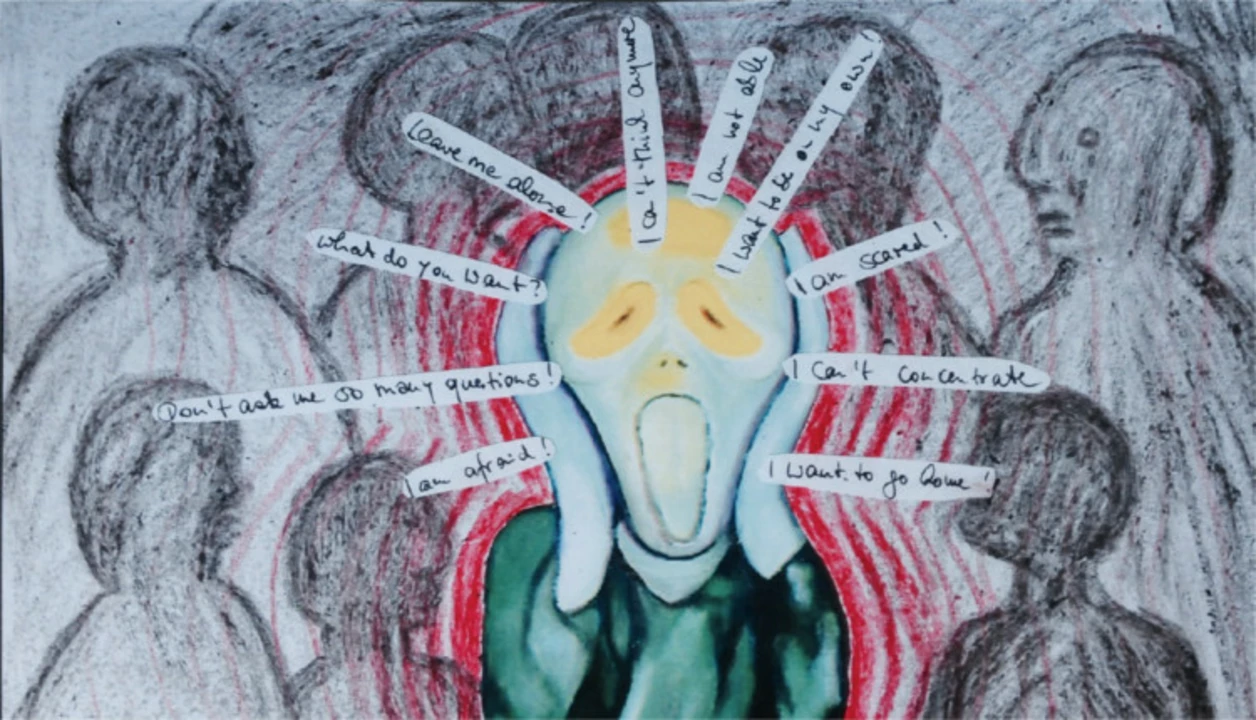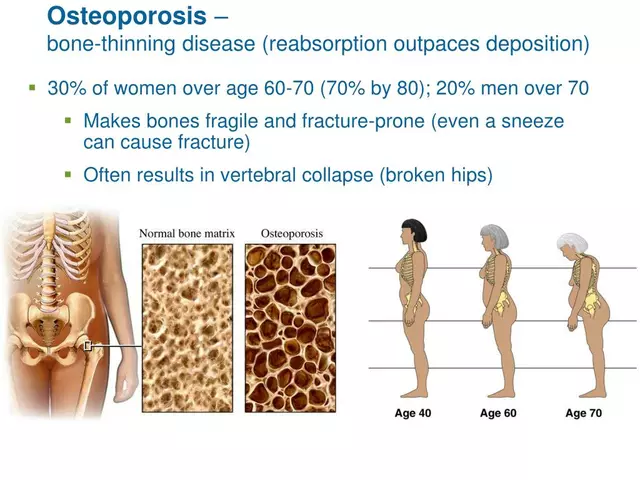Understanding Anxiety and Depressive Disorder
As someone who has personally experienced both anxiety and depressive disorder, I know firsthand how debilitating these conditions can be. In this article, we will be exploring the connection between anxiety and depressive disorder, and how these two mental health issues can often be intertwined. Through this exploration, I hope to shed light on the importance of understanding these conditions and the impact they can have on our lives.
The Intricacies of Anxiety
Anxiety is a normal response to stress or danger, and it can help us react quickly in certain situations. However, when anxiety becomes persistent and irrational, it can interfere with our daily lives and well-being. There are several types of anxiety disorders, including generalized anxiety disorder, panic disorder, and social anxiety disorder. These disorders can manifest themselves in various ways, such as excessive worry, panic attacks, and a fear of social situations.
While anxiety is often characterized by feelings of restlessness and unease, it can also have physical symptoms, such as rapid heartbeat, shortness of breath, and muscle tension. For many people, these physical symptoms can exacerbate feelings of anxiety, creating a vicious cycle that can be difficult to break.
Living with anxiety can be incredibly challenging, and it can make even the most mundane tasks feel overwhelming. It's important to seek help if you are struggling with anxiety, as it can have a significant impact on your overall mental health and well-being.
Depressive Disorder: More Than Just Sadness
Depressive disorder, also known as clinical depression, is a mental health condition characterized by persistent feelings of sadness, hopelessness, and a lack of interest in activities that were once enjoyable. Unlike temporary feelings of sadness or grief, depressive disorder can last for weeks, months, or even years if left untreated.
There are several types of depressive disorder, including major depressive disorder, persistent depressive disorder (dysthymia), and bipolar disorder. The symptoms of depressive disorder can vary, but common signs include feelings of worthlessness, changes in appetite, sleep disturbances, and difficulty concentrating.
Depressive disorder can have a profound impact on every aspect of a person's life, from their relationships to their work or school performance. It's crucial to recognize the signs of depression and seek help if you or a loved one is struggling with this condition.
The Connection Between Anxiety and Depressive Disorder
While anxiety and depressive disorder are distinct mental health conditions, they often co-occur, meaning that an individual can experience both conditions simultaneously. In fact, research has shown that nearly 50% of people with depression also suffer from an anxiety disorder. This overlap can make it difficult to tease apart the symptoms of each condition, and it can also complicate the process of diagnosis and treatment.
There are several theories as to why anxiety and depressive disorder are so closely linked. One possibility is that they share common risk factors, such as genetics or environmental stressors. Another theory is that the presence of one condition can increase the risk of developing the other. For example, living with chronic anxiety can lead to feelings of hopelessness and despair, which can then contribute to the development of depressive disorder.
Regardless of the reason behind the connection, it's clear that anxiety and depressive disorder can have a significant impact on an individual's overall mental health and well-being. As such, it's essential to be aware of the signs and symptoms of both conditions and seek help if needed.
Seeking Help and Support
If you suspect that you or a loved one may be struggling with anxiety, depressive disorder, or both, it's crucial to seek help from a mental health professional. This may include consulting with a therapist, psychiatrist, or another mental health provider to discuss your symptoms and develop a treatment plan. Treatment options for anxiety and depressive disorder may include therapy, medication, or a combination of both.
In addition to professional help, support from friends and family can be invaluable in managing anxiety and depressive disorder. Opening up about your struggles can help reduce feelings of isolation, and loved ones may be able to provide much-needed encouragement and understanding.
Finally, don't forget the importance of self-care. Engaging in activities that promote relaxation and well-being, such as exercise, meditation, and spending time in nature, can have a positive impact on your mental health and help alleviate symptoms of anxiety and depressive disorder.
Conclusion
The connection between anxiety and depressive disorder is complex and multifaceted. While these conditions are separate mental health issues, they often co-occur and share common risk factors. Understanding the relationship between anxiety and depressive disorder is essential in order to recognize the signs and symptoms of each condition and seek appropriate help and support. Remember, you don't have to face these challenges alone – there is help and hope available for those who are struggling with anxiety, depressive disorder, or both.





Christine Watson
First off, thank you for sharing such a thorough rundown of how anxiety and depression can intertwine.
It's easy to feel like you're stuck in a never‑ending loop when the two feed off each other.
One practical tip is to keep a simple mood‑log: jot down moments of heightened worry and note what you were doing right before.
Seeing patterns emerge can give you a sense of control and point to specific triggers you might be able to address.
Another useful strategy is to practice grounding techniques, like the 5‑4‑3‑2‑1 method, during panic spikes.
These exercises can pull you out of the over‑thinking spiral and bring your body back to the present.
On the medication side, many clinicians start with a low dose of an SSRI, which often eases both anxiety and depressive symptoms.
If medication isn’t your thing, cognitive‑behavioral therapy has a strong evidence base for tackling the thought loops that keep you stuck.
Don’t underestimate the power of regular movement- even a short walk can release endorphins that lift mood.
Sleep hygiene is another cornerstone; try to shut off screens an hour before bed and keep a consistent bedtime.
Connecting with supportive friends or family can cut through the isolation that depression loves to amplify.
If you’re comfortable, sharing your experience in a community forum can also remind you that you’re not alone.
Remember that progress isn’t always linear; some days will feel better than others and that’s perfectly normal.
Celebrate the small wins, like getting out of bed on a tough morning or speaking up about how you feel.
Your courage in facing both conditions is already a huge step toward recovery.
Keep leaning on professional help, stay kind to yourself, and know that brighter days are absolutely possible.
Macy Weaver
It's encouraging to see how many of the same environmental stressors-like chronic work pressure or relationship strain-can light the fuse for both anxiety and depression.
When we look at the brain chemistry, neurotransmitters such as serotonin and GABA often play double duty, influencing mood and fear responses simultaneously.
Building a toolbox that includes both relaxation exercises and purpose‑driven activities can help keep the two from spiraling together.
Remember, you don’t have to tackle everything at once; focusing on one manageable habit each week often yields the biggest payoff.
And whenever you feel you’re slipping, reaching out to a trusted confidant can make the weight feel a lot lighter.
James McCracken
While the prevailing narrative paints anxiety and depression as merely neurological mishaps, one could argue they are, in fact, existential signals warning us of a deeper dissonance between our lived reality and our internal ideals.
From that perspective, the therapeutic emphasis on symptom suppression may inadvertently mute the very introspection that fuels authentic growth.
Instead of merely balancing neurotransmitters, perhaps we should be interrogating the cultural scripts that dictate what "success" and "happiness" look like.
This doesn't diminish the suffering, but it reframes it as a catalyst for philosophical reevaluation rather than a condition to be merely medicated.
Consequently, the integration of art, literature, and reflective practice might be as vital as any prescription.
Evelyn XCII
Oh great, another deep‑think‑session about why our brains are broken-thanks for the enlightenment.
Honestly, I’d rather just take a nap than untangle some “existential signals.”
But hey, if it makes you feel smarter, keep the philosophy coming.
Suzanne Podany
One thing that often gets overlooked is how cultural background shapes the way we experience and express anxiety and depression.
For instance, many collectivist communities may view emotional distress as a family issue rather than an individual problem, which can affect help‑seeking behavior.
Encouraging open dialogue within families and respecting cultural coping mechanisms-like community rituals or traditional storytelling-can bridge that gap.
Pairing these culturally resonant practices with evidence‑based therapies creates a more holistic support system.
So, wherever you’re coming from, know that your cultural heritage can be a source of strength, not a barrier.
Nina Vera
I’m literally shaking just thinking about how powerful that synergy can be!
Christopher Stanford
Let’s cut the fluff: the “intertwining” narrative is overused buzz‑word nonsense that masks the fact that most studies just correlate symptoms without proving any real causation.
Meta‑analyses show a wide variance in comorbidity rates, yet the media loves to scream “50%!” as if it’s a hard‑wired law.
If you’re looking for actionable insight, start demanding better methodological transparency instead of settling for vague “shared risk factors.”